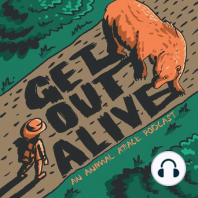47 min listen

Ep. 1: The Champawat Tigress (feat. Sam Helle)
Ep. 1: The Champawat Tigress (feat. Sam Helle)
ratings:
Length:
51 minutes
Released:
Jul 14, 2021
Format:
Podcast episode
Description
In the early 1900s, the town of Champawat was terrorized by a tigress who specialized in killing and consuming humans. We recount her last kill, and her ultimate demise.We also talk to tiger biologist Sam Helle and get insight on how to avoid tiger conflicts in Nepal, and she gives an update on tiger conservation there.The National Trust for Nature Conservation Nepal: Facebook, TwitterDr. Babu Ram Lamichhane Twitter: @1baburamSabita Malla WWF-Nepal Senior Research Officer: WWF ArticleDr. Naresh Subedi: ResearchGateBardia's Community Based Anti-Poaching Units (CBAPUs); You can either contact them directly to donate or donate to Katie Adamson Conservation Fund and request funds be sent to Bardia and Chitwan's CBAPUs .Follow us on Instagram, check out our website GetOutAlivePodcast.com and join us on Patreon! You can find Ashley at TheAngryOlogist on Twitter and Nick is an enigma. Thanks for listening!Disclaimer: This is not professional advice; Follow at your own risk.Support the show
Released:
Jul 14, 2021
Format:
Podcast episode
Titles in the series (79)
Ep. 6: Colorado man vs. Coyote pack by Get Out Alive: An Animal Attack Podcast